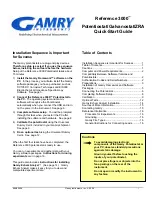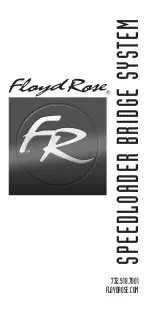
Page 12
-
The following environment is required: Indoor temperature: 0-40°C, Maximum relative humi
-
dity: 85 % (non condensing)
-
After use, the instrument must be cleaned and stored in a dry, well-ventilated and clean place.
Use the dust cover and the desiccant.
-
After dealing with corrosive liquid the cleaning should be done immediately after use in time
to prevent from corrosive damage on the optical and mechanical parts as well as the painted
surface.
Warning
: If left on, naphthalene bromide may corrode the prisms.
-
Verify that no hard contaminant is left in the sample during the test. When using a solid test
sample, be sure not to scrape or damage the prism surface.
-
The instrument should always be kept clean. Never touch the optical parts with your fingers.
Cleaning of the optical parts may be done by rubbing lightly with a piece soft lens tissue or
absorbent cotton, then blow it dry with a blow drier. Only if needed, use a cloth moistened with
water and a mild detergent, rinsing with water and drying immediately with a lint-free cloth.
-
Smears on the optical surface can be removed in time using xylene or ether.
-
The instrument should be protected against drastic vibration and impact to prevent the optical
parts form being damaged, which will affect the testing accuracy.
-
Do not attempt to service the refractometer yourself.
How to change the batteries of the thermometer
The thermometer uses one button cell battery, LR 44. To change the battery, remove the door
on the back of the thermometer, remove the old battery, replace it with a new one and replace
the door.
Warning
: Batteries are dangerous to the environment. Discard them as required by the law.
8.0 MAINTENANCE













































